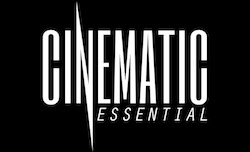Music is an art form like no other. It’s a style of entertainment that will eventually captivate all at some point during their lives. When you take into account that all it takes is a few minutes in time to get audiences hooked for generations, it’s easy to see why there’s such an affinity for it. That’s probably one reason filmmakers like Cory Bailey and Jeff Broadway choose to focus on it. In their latest venture, the two take a look at soul music. The documentary is Living on Soul and I was able to speak to them about that and a few other things concerning music and their careers.
CINEMATIC ESSENTIAL: How did you get involved in this project
Jeff Broadway: It was Summer 2014 and Cory Bailey and I had been flirting with starting a production company. We’d been friends for a while and this opportunity to go to Europe with Daptone for a Super Soul Revue tour arose. I’d recently made a doc called Our Vinyl Weighs A Ton about Stones Throw Records, and they and Daptone share a UK label rep who recommended Neal Sugarman (Co-Founder of Daptone) speak to me. Neal invited us to join the tour and film it. We made our way across Western Europe and one day at Glastonbury Neal got a call from the Apollo – they wanted to host a multi-night Daptone residency. We knew then that was going to become the heart of the film.
What was the most unexpected thing you learned from this experience?
Cory Bailey: Prior to this, I’d worked on a number of films, both short and long form in different capacities, but this was the first film I was involved with from start to finish. What I learned the most along the process was that as you become increasingly involved with the people whose story you are telling, you have to really work to maintain clarity on the overall story, what to tell and how best to do that. There are so many moments you capture along the way, and while they may not all end up in the film, they help guide the creative decisions you make along the way.
You’ve done documentaries based on the music scene before, but what sets this apart from what you’ve previously covered?
Broadway: This isn’t so much about differences in “scenes”, but the primary difference in filmmaking is that Living On Soul is so largely performance-based. The previous documentaries I’ve made have been very archival-reliant, and Cory and I strove to make a film comprised of original production. There’s not a second of archival in the whole film, and we’re proud of that.
Why do you believe this style of music is still worth listening to?
Bailey: It’s called soul music for a reason.
What did you do to make this different from all of the other recent documentaries that have been about the musicians we meet here?
Broadway: For us other documentaries being made/coming out around the same time as ours wasn’t really a consideration in our process. We took our creative cues from classic music films like The Last Waltz and Soul Power, and paid little attention to trend.
Bailey: The whole crew of musicians have such interesting stories and histories, and there are documentaries out there that really touch on those aspects more deeply. For us, and I think for the folks over at Daptone, this film is more about a moment in time for the family – a window into this run of shows, and the hard work and dedication it took for them to reach this stage and play those historic nights.
How vital has Kickstarter been to you so far in your career?
Broadway: Kickstarter has been a real factor in each of my first three films getting finished, no doubt. I’m very grateful for that, the KS team and the community who has supported me.
Is it something that you will continue to use in the future?
Broadway: I don’t believe so, but never say never.
Was there any one moment or memory that stood out to you during the filming of this documentary?
Bailey: Continually getting the chills when Sharon performed “Get Up And Get Out” to close her sets at the Apollo, and experiencing the way she touched people in the room.
At some point, you found yourself traveling across Europe for 10 days with 40 musicians. Can you explain what that was like?
Broadway: It was cramped, awesome and tiring. I’d never been on a tour bus like that, and the most memorable aspect of that time was spending so much of it with Charles on his bus.
I learned about the late Charles Bradley maybe a couple of years ago. He was a fantastic artist who finally got his big break later on in his career. What do you think people can learn from his story?
Bailey: I think Charles says it best in the film. “For anybody that’s out there, that’s seeking their dreams, don’t give up. Take it to your grave.”
What do you have planned in the immediate future as far as projects are concerned?
Broadway: The same thing we do every night, Pinky – try to take over the world!
Are there any other types of projects you would like to tackle in the future?
Bailey: Jeff and I have our own individual interests, but have also made a business together, as Valentine Street, of being producers of different types of content. Music videos, branded content, web spots, short-form documentary, long-form documentary, and increasingly narrative.
In closing, would you care to add anything else?
Broadway: This film was a real labor of love. We hope it speaks to you on a core level. Look for it December 5, 2017. Thanks!





















